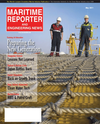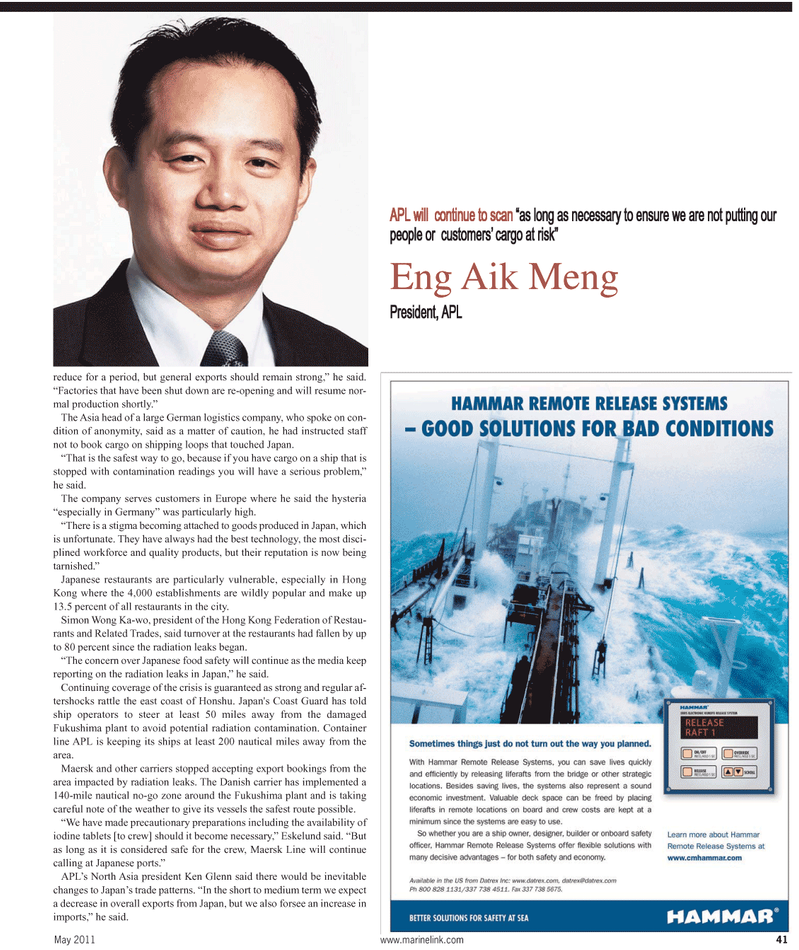
Page 41: of Maritime Reporter Magazine (May 2011)
Training & Education Edition
Read this page in Pdf, Flash or Html5 edition of May 2011 Maritime Reporter Magazine
reduce for a period, but general exports should remain strong,” he said. “Factories that have been shut down are re-opening and will resume nor- mal production shortly.”
The Asia head of a large German logistics company, who spoke on con- dition of anonymity, said as a matter of caution, he had instructed staff not to book cargo on shipping loops that touched Japan. “That is the safest way to go, because if you have cargo on a ship that is stopped with contamination readings you will have a serious problem,” he said.
The company serves customers in Europe where he said the hysteria “especially in Germany” was particularly high. “There is a stigma becoming attached to goods produced in Japan, which is unfortunate. They have always had the best technology, the most disci- plined workforce and quality products, but their reputation is now being tarnished.”
Japanese restaurants are particularly vulnerable, especially in Hong
Kong where the 4,000 establishments are wildly popular and make up 13.5 percent of all restaurants in the city.
Simon Wong Ka-wo, president of the Hong Kong Federation of Restau- rants and Related Trades, said turnover at the restaurants had fallen by up to 80 percent since the radiation leaks began. “The concern over Japanese food safety will continue as the media keep reporting on the radiation leaks in Japan,” he said.
Continuing coverage of the crisis is guaranteed as strong and regular af- tershocks rattle the east coast of Honshu. Japan's Coast Guard has told ship operators to steer at least 50 miles away from the damaged
Fukushima plant to avoid potential radiation contamination. Container line APL is keeping its ships at least 200 nautical miles away from the area.
Maersk and other carriers stopped accepting export bookings from the area impacted by radiation leaks. The Danish carrier has implemented a 140-mile nautical no-go zone around the Fukushima plant and is taking careful note of the weather to give its vessels the safest route possible. “We have made precautionary preparations including the availability of iodine tablets [to crew] should it become necessary,” Eskelund said. “But as long as it is considered safe for the crew, Maersk Line will continue calling at Japanese ports.”
APL’s North Asia president Ken Glenn said there would be inevitable changes to Japan’s trade patterns. “In the short to medium term we expect a decrease in overall exports from Japan, but we also forsee an increase in imports,” he said.
May 2011 www.marinelink.com 41
APL will continue to scan “as long as necessary to ensure we are not putting our people or customers’ cargo at risk”
Eng Aik Meng
President, APL

 40
40

 42
42
